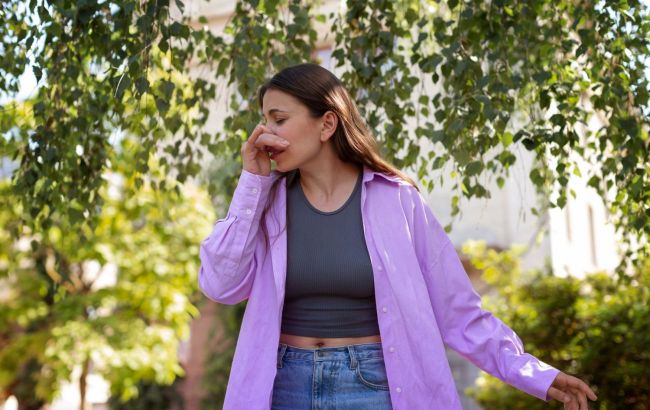Doctor lists 5 simple rules to ease seasonal allergy symptoms
 How to reduce the manifestations of seasonal allergies (photo: Freepik)
How to reduce the manifestations of seasonal allergies (photo: Freepik)
With the onset of plant blooming, many people are bothered by pollen, which triggers hay fever and allergies. Completely avoiding this irritant is not possible, but there are simple actions that help reduce its impact on the body and thus minimize symptoms. Nutritionist Oleg Shvets advises how to reduce the manifestations of seasonal allergies.
What you need to know about seasonal allergies
"Up to 20% of the world's population suffers from seasonal allergies. Among adults aged 18-40, such manifestations are more common than in children and other age groups," says the doctor.
The most common airborne allergen is pollen. It disperses through plants, trees, grass, and weeds and is typically present in higher concentrations during the warmer seasons. The type and quantity of pollen in the air depend on the local vegetation and the environment where people reside.
"The most common reaction to pollen is allergic rhinitis, also known as hay fever. It occurs when the immune system reacts to the entry of pollen into the body, releasing protective chemicals that cause symptoms such as fatigue and a stuffy nose. There may also be inflammation of the eye's mucous membrane, leading to redness, tearing, and itching, which we associate with allergy season," says the doctor.
People with asthma are also at increased risk of worsening symptoms due to the impact of pollen, which can trigger asthma attacks in tandem with other common reactions.
Symptoms of pollen allergy
The most common symptoms include:
- fatigue (allergic rhinitis, rhinorrhea)
- stuffy nose
- sneezing
- itching in the nose, eyes, ears, and mouth
- red, tearing eyes
- swelling around the eyes (allergic conjunctivitis)
"In asthma, pollen exposure can worsen symptoms. This is called allergic asthma. If asthma symptoms worsen due to environmental factors or additional symptoms arise, it is necessary to consult a doctor," says Shvets.
Reducing allergy symptoms
Check the pollen forecast. Similar to checking the weather forecast, there's a pollen forecast that can help plan your day to minimize allergy exposure. For instance, when pollen levels are high, it's advisable to spend less time outdoors.
Have allergy and asthma medication handy. Stock up on medications that alleviate symptoms for your home pharmacy. Take these medications as prescribed by your doctor.
Maintain cleanliness. While outside, you can pick up pollen particles on your clothes. Therefore, avoid touching your eyes while outdoors, and upon returning indoors, rinse your eyes. After coming back home, consider taking a shower to remove pollen from your skin and hair.
Close windows. This helps reduce the entry of allergens into your living space.
Use filters. Regularly run air conditioning or use an air purifier with a HEPA filter to filter out allergens.
Myths about allergy medications
Consuming honey. Some believe that regularly consuming local honey aids in assimilating residual pollen gathered by bees for honey production, thereby boosting immunity. However, bee-collected pollen doesn't trigger allergies. Honey may help with sore throats but doesn't cure allergies.
Apple cider vinegar. There's no evidence that consuming vinegar improves allergy symptoms.
Visiting a manual therapist. Once again, there's no scientific evidence to support the therapeutic effects of such sessions.
Relying solely on over-the-counter medications. Some people consider seasonal allergies trivial and thus don't seek medical attention. However, a doctor can assess your condition and prescribe an effective medication.
Avoiding flowers. Flowers typically produce pollen that attracts pollinating insects. However, for humans, the allergens come from grass and tree pollen carried through the air.
"New allergies can develop at any time in life. Don't ignore new symptoms just because exposure to a particular substance didn't trigger an allergy in the past," says Shvets.
Also, read about where to find the "youth vitamin" E and why it's crucial to avoid its deficiency at all costs.
This material is for informational purposes only and should not be used for medical diagnosis or self-treatment. Our goal is to provide readers with accurate information about symptoms, causes, and methods of detecting diseases. RBС-Ukraine is not responsible for any diagnoses that readers may make based on materials from the resource. We do not recommend self-treatment and advise consulting a doctor in case of any health concerns.

